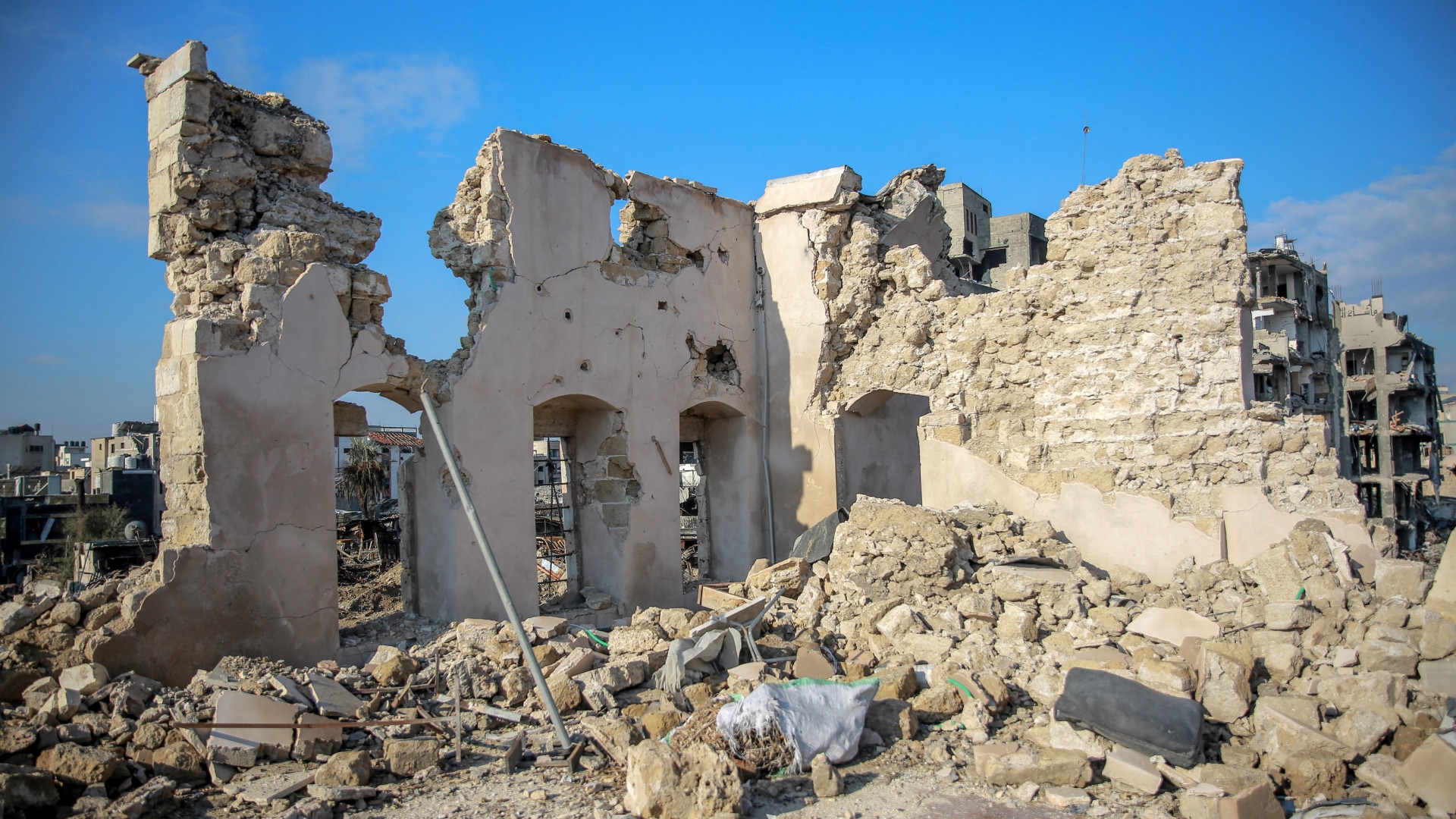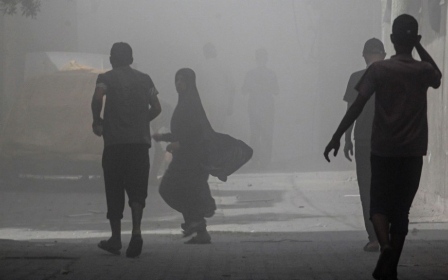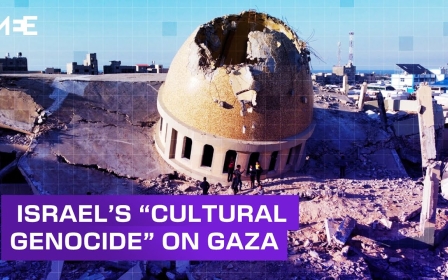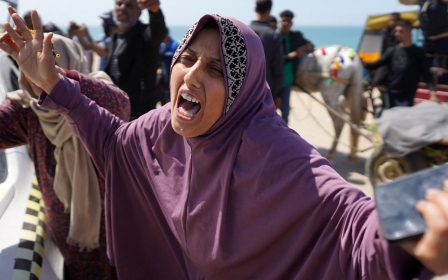Israel has destroyed Gaza's heritage sites, but it cannot erase my memories of them

Living in one of Gaza's historic neighbourhoods meant passing by the "Old City" of Gaza every day when I went to school, the gym, or even to buy falafel.
The cultural and historical sites of the Old City, the heart of Gaza City and which has long been surrounded by expansion over the centuries, are a core part of my childhood memories. I visited them hundreds of times. I knew all the people who lived there and even the secret shortcuts to sites such as Qasr al-Basha, the Great Omari mosque, and the Church of Saint Porphyrius. I never could have imagined that one day much of that area would vanish.
I am among the 33 percent of Palestinians in Gaza who are not refugees and whose family's roots in the city extend back a few hundred years. My family was historically split between the adjacent El-Tuffah and Shujaiya neighbourhoods - two of Gaza's ancient and historic areas outside the core Old City - which allowed me to spend a lot of time in that area.
New MEE newsletter: Jerusalem Dispatch
Sign up to get the latest insights and analysis on Israel-Palestine, alongside Turkey Unpacked and other MEE newsletters
But seeing this war unfolding, I am concerned that new and later generations of Palestinian children may not get to experience the older parts of the city as I did.
History erased
Since the beginning of the war, Unesco has identified damage to at least 50 cultural sites in its damage assessment. Some of those places have a history that goes back thousands of years.
Take the Great Omari mosque in the old city, for instance. Originally built as a church in the 5th century, it is Gaza's oldest and largest mosque, a testament to its rich history. The Mongols destroyed parts of it in the 13th century, and the British severely damaged it during World War One.
Rebuilding restaurants, shops, and markets might seem more manageable, but in Gaza the reality is grim
During the current war, Israel has largely destroyed the mosque. It was hit by an air strike in early December, two months after the war began. Photos that emerged show how the surrounding area of the mosque was not destroyed, indicating Israel's goal of specifically targeting the mosque.
It is not the only building to have been destroyed in the Old City. Israeli bombing has also damaged the Church of Saint Porphyrius, founded in 425 AD and believed to be the world's third-oldest church, and Qasr al-Basha (the Pasha's Palace), which dates back to the Mamluk period in the 13th century.
The destruction includes many other heritage sites outside of the Old City. One of those is the Ibn Uthman mosque, in Shujaiya, where my grandmother spent many years of her childhood. Her father was the caretaker of the historic mosque.
She would often mention her memories of gazing at the sea from the top of the mosque's minaret. While invading Shujaiya in early December, Israel obliterated the mosque, leaving nothing but rubble. I now have to find the right words to tell her this tragic news. There simply aren't any.
Follow Middle East Eye's live coverage of the Israel-Palestine war
Rebuilding restaurants, shops and markets might seem more manageable, but, in Gaza, the reality is grim. Some of those places may never return. The reason is not because of the challenging, long process of reconstruction but because the owners of those businesses and their entire families have been wiped from the Palestinian civil registry.
My kids might never experience the joy of debating which falafel restaurant is the best or which supermarkets have the best deals, as I once did. But what haunts me more is that I, myself, may never get to have those conversations again.
We will rebuild
In South Africa's case against Israel in the International Court of Justice, the legal team highlighted the devastating impact of the war on Palestinian life in Gaza.
Indeed, the annihilation of those sites goes beyond the tragedy of denying children the opportunity to learn about their heritage; it is an erasure of Palestinian history, a narrative that Israel has long attacked.
The destruction isn't about piecing together the remnants of the ruins; it's about the loss that strips our own identity and existence.
Should I even mention international law? It appears powerless against this aggression that has killed tens of thousands of people, obliterated entire neighbourhoods and starved my people.
But, yes, the 1977 Additional Protocol 1 to the 1949 Geneva Conventions prohibits "any acts of hostility directed against the historic monuments, works of art or places of worship which constitute the cultural or spiritual heritage of peoples".
Israel's negligence of international law is beyond expression; it defies description.
Israel destroyed the Great Omari Mosque in Gaza, one of the oldest and most historically significant structures in both Palestine and the broader Middle East. pic.twitter.com/lVMbcIvxGQ
— Jehad Abusalim جهاد أبو سليم (@JehadAbusalim) December 28, 2023
Still, just as we rebuilt the Great Omari mosque after its destruction in 1917, we will rise from under the rubble and rebuild it once more.
Israel can demolish our mosques, churches and streets, yet our spirit remains unbreakable. Even if the occupier forbids us from rebuilding our city, I will write a poem for every restaurant, a novel for every neighbourhood, and an encyclopaedia for every town.
Israel might have destroyed every corner of Gaza, but it will never erase those corners of our memories.
The views expressed in this article belong to the author and do not necessarily reflect the editorial policy of Middle East Eye.
Middle East Eye delivers independent and unrivalled coverage and analysis of the Middle East, North Africa and beyond. To learn more about republishing this content and the associated fees, please fill out this form. More about MEE can be found here.





